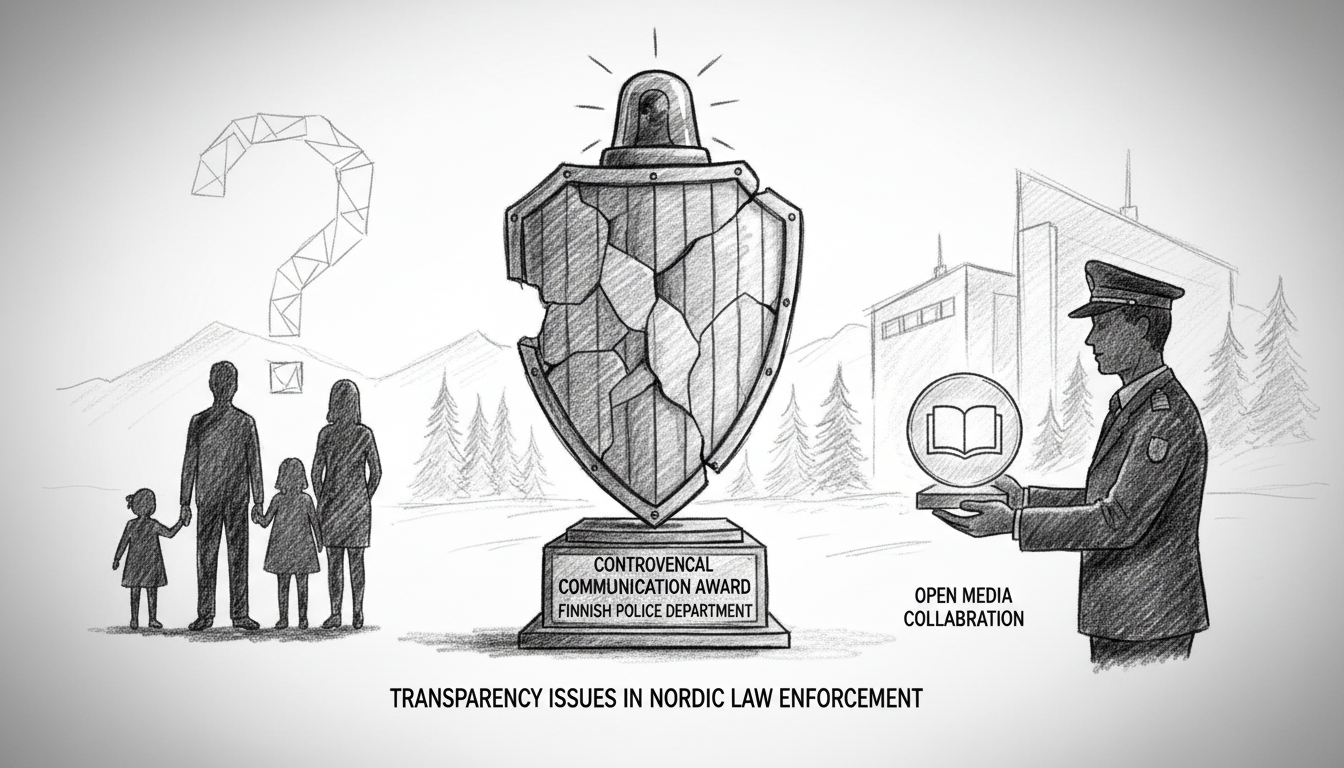The Association of Legal Journalists has awarded the Ostrobothnia Police Department with its annual Fog Veil Prize for poor communication practices. This controversial recognition highlights growing tensions between Finnish authorities and media outlets. The police department received the negative award following widespread criticism of its handling of media relations during a high-profile missing family investigation.
The award citation specifically targets the police department's communication strategy. Media collaboration with Ostrobothnia Police has reportedly been problematic for an extended period. Communication manager Mikael Appel frequently blocks journalists from contacting lead investigators by taking responsibility for media relations himself. When reporters manage to reach Appel by phone, he rarely answers their questions beyond official statements.
The association points to the Karf family disappearance case as a fresh example of poor communication practices. The large family vanished over a year ago under mysterious circumstances. Parents Karoliina and Tommy Karf disappeared with their children and remain missing. Authorities suspect the parents of assault, deprivation of liberty, and unauthorized child custody actions. Police believe the family might be hidden somewhere in Ostrobothnia, Southern Finland, or possibly elsewhere in the Nordic region.
In an unusual move, police initially sought media assistance to locate the missing family. They exceptionally published the missing parents' names and photographs. Shortly after this public appeal, lead investigator Tony Rauma stopped responding to media inquiries. He became available only through email communication. Later, communication responsibility shifted entirely to Appel, who provided no additional information beyond official press releases.
Legal journalists consider this communication pattern particularly harmful. The police made a rare public outreach requesting media help to gather tips from the public. Yet they failed to maintain transparent communication or address follow-up questions from journalists. This approach undermines public trust and hampers investigative journalism.
The association also presented its positive communication award, the Spotlight Prize, to Customs Control Director Hannu Sinkkonen. Throughout his career, Sinkkonen has maintained exceptionally positive and open media collaboration. Under his leadership, customs crime communication has reached new levels of transparency while police communication has become increasingly restricted.
The awards decision comes from the Association of Legal Journalists board based on member suggestions. This annual recognition system aims to improve communication standards between authorities and media. The stark contrast between this year's winners highlights concerning trends in Finnish institutional transparency.
Police communication practices directly impact public safety and trust. When families disappear and investigations stall, transparent communication becomes crucial for gathering information and maintaining community confidence. The Fog Veil Prize serves as a public reminder that authorities must balance operational security with necessary transparency.
Finnish police departments face increasing scrutiny over their media relations. This case demonstrates how poor communication can hinder investigations and erode public cooperation. The Karf family disappearance remains unresolved while communication barriers persist between police and journalists seeking answers for concerned citizens.

